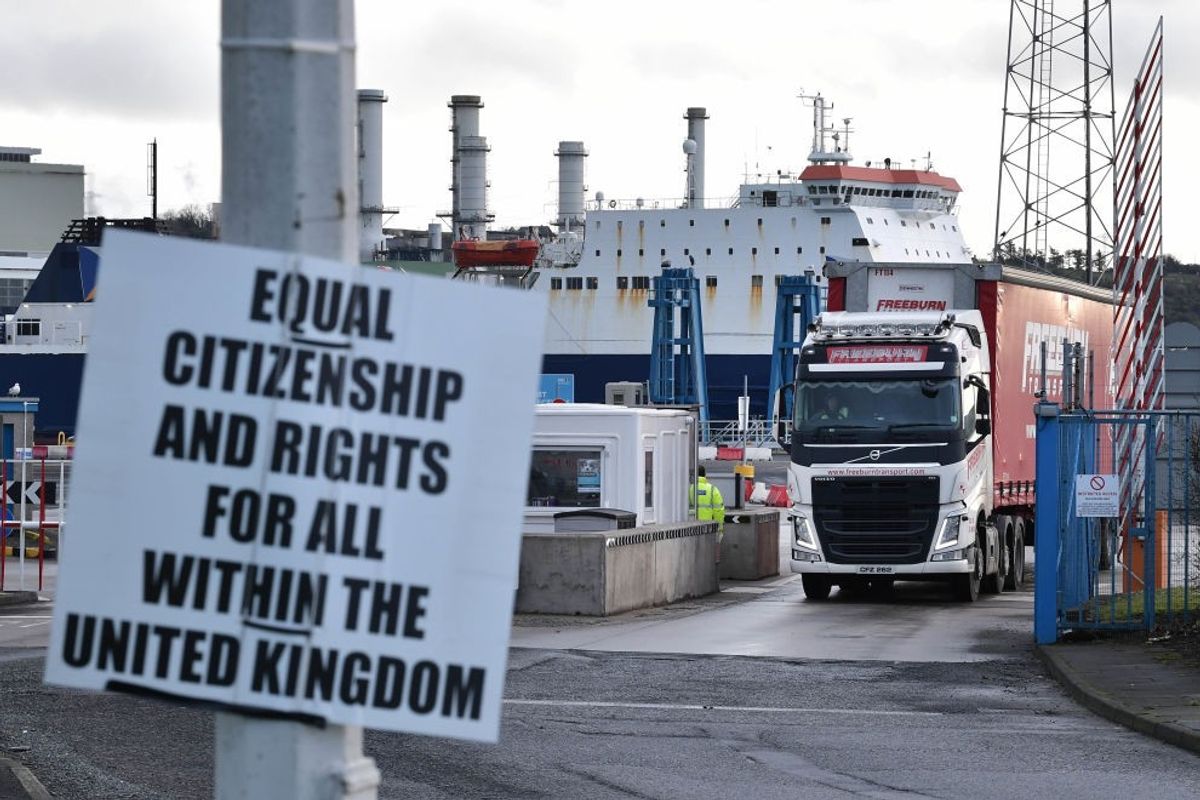‘Unnecessary costs’ of food labelling to manufacturers would ultimately lead to higher prices for consumers, an industry body has warned, responding to the announcement by Northern Ireland’s Democratic Unionist Party (DUP) that it had reached a deal with the UK government on the operation of post-Brexit trade rules.
“We're waiting to hear from the government on what [the] deal with the DUP means for the food and drink industry. It's critical to food and drink businesses that any deal does not cause unnecessary costs to manufacturers and, ultimately, to consumers across the UK - particularly when households are already grappling with a cost-of-living crisis,” Karen Betts, chief executive of the Food and Drink Federation (FDF), said.
She said the impact and costs of requiring ‘Not for EU’ labelling on products sold right across the UK, not only in Northern Ireland, would be “significant”.
“We estimate the costs would run into hundreds of millions of pounds. Manufacturers could be forced to reduce the number of products they sell in the UK and food and drink exports are likely to fall, particularly those produced by SMEs,” she added.
The ‘Not for EU’ label means that a product has entered Northern Ireland under the simplified trade rules of the Windsor Framework. The product has not been subject to full EU controls and is only intended to be placed on the market in NI for final consumers.
Last month Scottish food and rural affairs secretary Mairi Gougeon has also raised concerns about the proposed rollout of ‘Not for EU’ labelling on food and drink products across the whole of the UK from October.
Gougeon said the move proposed by the UK government would amount to “arbitrarily adding costs to businesses” at a time when consumers are already facing a cost of living crisis.
Earlier this week, DUP leader Jeffrey Donaldson, the new measures, which will be underpinned by new UK laws, will remove checks for goods moving within the UK and remaining in Northern Ireland, guarantee unfettered access for Northern Ireland businesses to the UK market and safeguard the region’s place in the UK.
"Subject to the binding commitments between the Democratic Unionist Party and the UK government being fully and faithfully delivered as agreed... the package of measures in totality does provide a basis for our party to nominate members to the Northern Ireland executive," he added.
Northern Ireland has been without a devolved government for almost two years after the DUP walked out in protest over the trade rules, which it said created barriers with the rest of the UK and undermined Northern Ireland’s place in it.
Donaldson said London would publish details “in due course” and could move quickly to enable the DUP to take its place back in Belfast’s Stormont Assembly.
Irish nationalists and pro-British unionist politicians are obliged to share power under the terms of the 1998 Good Friday peace accord that ended three decades of sectarian violence in Northern Ireland.
Why the government was suspended this time?
When Britain left the EU, it agreed in effect to leave Northern Ireland within the bloc's single market for goods, given its open border with EU member Ireland, enshrined in the Good Friday agreement.
But this put it at odds with Northern Irish unionists, and the DUP quit the government in February 2022 when the checks underpinning the deal began to be implemented. It also opposed a reworked agreement, the Windsor Framework, struck a year later, to reduce the number of checks required on some goods coming from Britain by introducing 'green' and 'red' lanes.
Donaldson said on Tuesday the offer from London to legally cement Northern Ireland's place and trading position in the UK was sufficient for the party to end its boycott.


